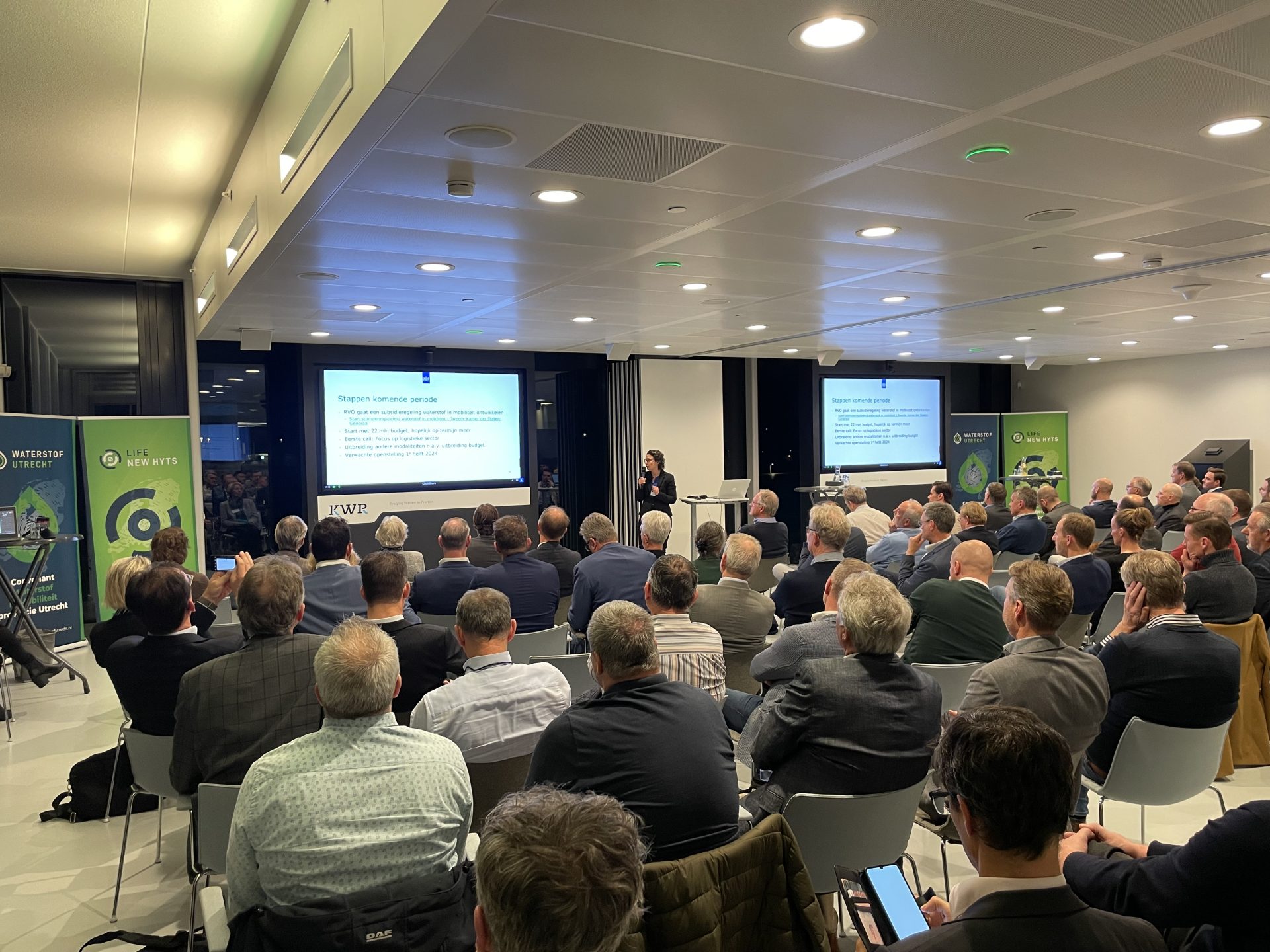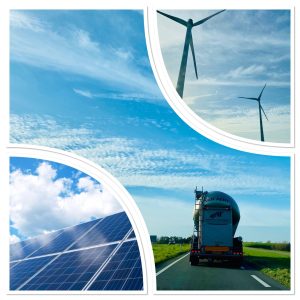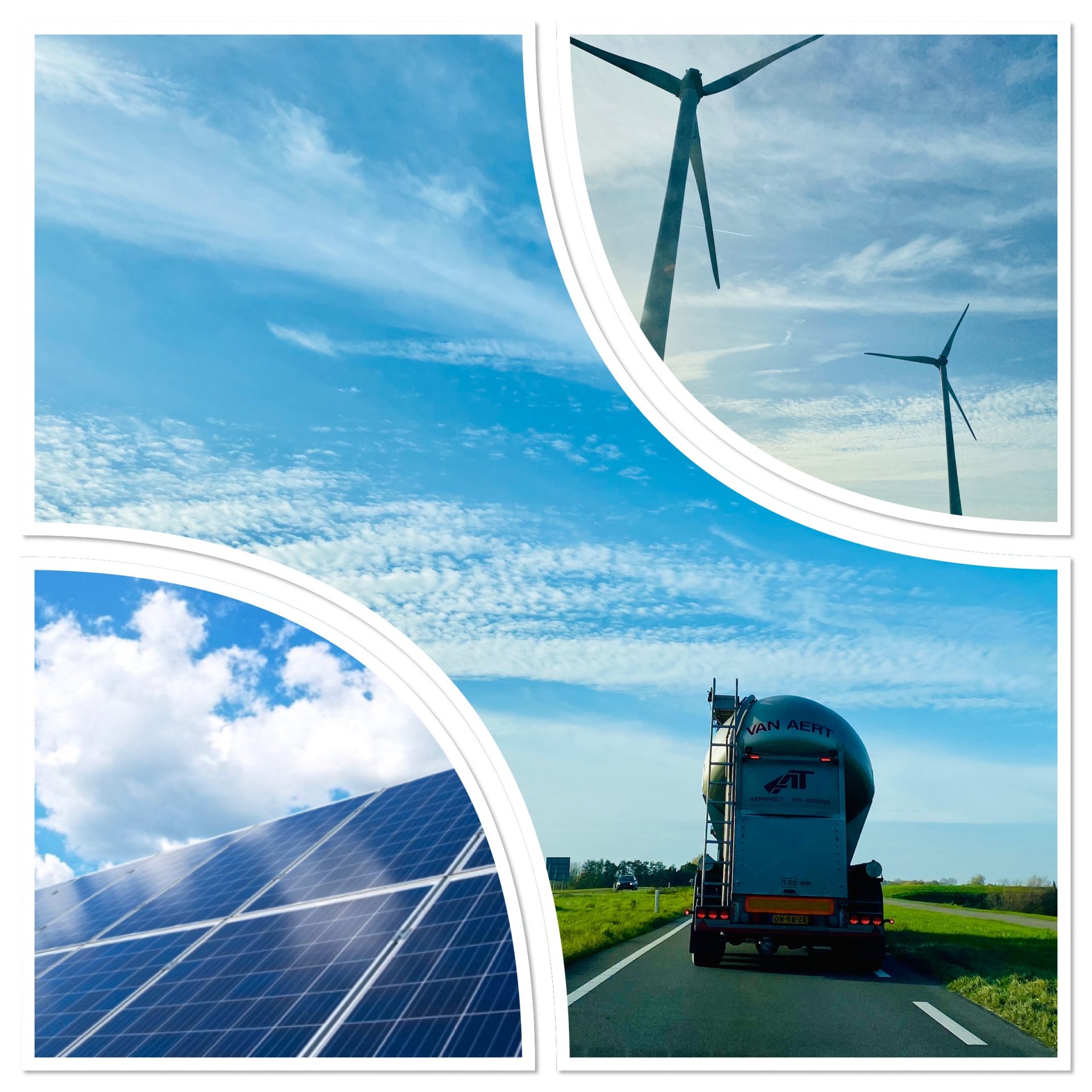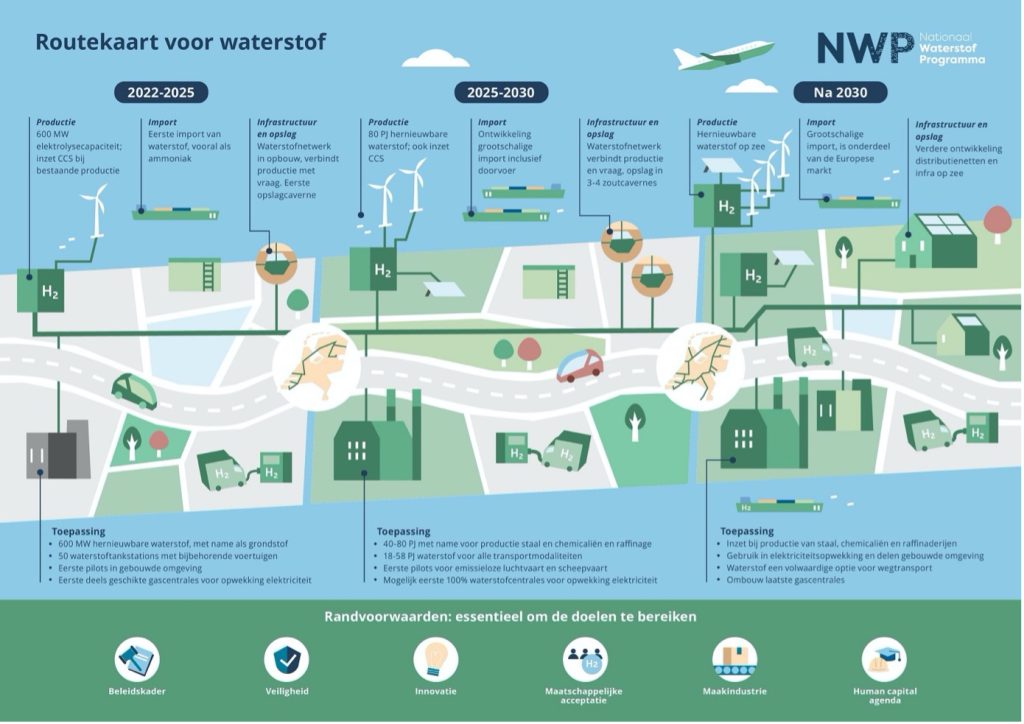Heavy duty hydrogen-powered transport seems to be a good alternative to diesel and necessary alongside electric transport initiatives. What is going on and how is acceleration taking place? Hydrogen Utrecht organized a meeting "Hydrogen for heavy transport" on Nov. 23. Truck manufacturers and transporters sat down together to discuss problems and opportunities. Customers, such as retailers and defense, knowledge institutes and governments were also present. A meeting with a lot of curiosity, technical solutions and especially many questions about how to accelerate.
Nine questions about hydrogen heavy transport

1. What is the task facing the transportation sector?
Climate goals, emission-free zones, our common sense: everything is crying out for a clean alternative to fossil fuels. The need for a solution for a clean alternative to diesel among transporters is great. In the Netherlands, 143,000 freight vehicles will be registered by 2022. The goals in the Dutch climate agreement speak of mobility withoutCO2 emissions by 2050. The transport sector is facing an important transition to emission-free transport. Transport in Europe is responsible for a large part ofCO2 emissions, while the demand for transporting goods is still growing. By 2025, a 15% reduction inCO2 emissions must be achieved. Moreover, there is a chance that ambitions will be further revised upwards as a result of stricter (European) requirements resulting from REDIII.
2. Why is hydrogen important for heavy transportation?
Hydrogen will play an important role in achieving the goals. For applications with hydrogen, in addition to shipping and aviation, we in the Netherlands are focusing mainly on heavy road transport applications; vehicles that require a lot of energy for long periods of time. This is necessary in addition to battery-electric driving, due in part to the overloading of the electricity grid and the high cost of reinforcing the electricity grid to make large-scale battery-electric driving possible. Most hydrogen-powered vehicles are similar in technology to battery-powered vehicles. The main difference is that the energy is stored in hydrogen tanks and not in batteries. Electricity is produced by the fuel cell. Here hydrogen and oxygen from the air react with each other. Hydrogen is especially crucial for making heavy transport and long-distance transportation more sustainable. Heavy transportation consumes a lot of energy and storing enough energy in batteries is still a challenge.
3. What will it take to make hydrogen successful in transportation?
There are a number of things that must be realized simultaneously for hydrogen road transport to succeed. Hydrogen trucks must be available for sale, green hydrogen must be produced, there must be enough refueling stations (preferably manned) and the whole thing must not be more expensive. The Netherlands wants to have at least 50 hydrogen refueling stations with enough sales of hydrogen vehicles realized by 2025. Now there are 14.
For clarification, see also hydrogen roadmap of the National Hydrogen Program.
4. What are the biggest challenges right now?
How do you change an industry that has been doing pretty much the same thing for over 80 years: running on diesel? Is it a chicken-and-egg issue? The customer wants it, we hear. The manufacturer says it can deliver, but the truck being delivered now would not be able to run due to lack of hydrogen refueling stations. Also a big challenge: Total Cost of Ownership (TCO), or how do we make it affordable over the lifetime of a truck? Because the price of a hydrogen truck is currently substantially higher than a diesel truck. The price of the truck is not the only variable that is uncertain. Is the infrastructure ready in time, what will be the price of hydrogen compared to diesel, how high is the tax forCO2 and what are the costs for service and maintenance and is there a subsidy for the purchase? But also, to what extent can laws and regulations be adjusted? Because if a truck gets longer because of the fuel tanks, can you and can you still enter built-up areas or will you get stuck behind bollards? And also, can it be realized fast enough?
5. How do we get green hydrogen?
The ambition of the climate agreement is 500 MW of electrolysis capacity by 2025. Green hydrogen is currently being produced on a small scale in the Netherlands. Green hydrogen comes from electricity from renewable sources, such as solar panels. In Nieuwegein at the site of KWR Water Research Institute is realizing Hysolar will construct an electrolyser in mid-2023 that will produce 300 tons of green hydrogen per year, enough for the daily use of about 25 trucks. This is part of the project LIFE NEW HYTS, which stands for reNEWable green HYdrogen for TranSport. This is a demonstration project and is subsidized by the European LIFE program. Residual heat will also be reused at a neighboring laundry at the business park. The project also serves to research the use, optimize it and share lessons learned with others.
6. Where can you refuel?
There are now 14 hydrogen refueling stations in the Netherlands. The first public filling station in the province of Utrecht, in Nieuwegein has been operating for a year. There you can fill up at 350 bar for trucks and at 700 bar for cars.
European regulations call for increased use of hydrogen in industry and transportation, as well as hydrogen refueling stations along highways every 100 to 150 kilometers and at major urban hubs, throughout the European Union.
7. Where do you buy a hydrogen-powered truck?
If one thing became clear at the "Heavy Transport on Hydrogen" meeting, it was that there is a lot going on among truck manufacturers large and small. A large number of manufacturers gave a glimpse into their hydrogen trucks kitchen.
- Hyundai Hydrogen Mobility, Hojun Suh
- VOLVO Group, Joost Koopmans
- DAF Trucks NV. Hydrogen Innovation, Peter Kramer
- Iveco Group. Nikoia Tre. Loek Vroon
- Daimler Truck AG. Mercedes Benz Trucks. Richard Bos
- TEVVA Hydrogen Electric Trucks. Marcel de Rycker
- Paul Group. David Boerhof
- FAUN Environment, Enginius. Paul Bruns
- GINAF Trucks Nederland B.V. Clean logistics. Hans van Dijk
- Holthausen Clean Technology. Aldwin Oechies
- Robert Goevaers
Their stories ranged from "available within six months" to "to be ordered in Germany." From "we will test on public roads in 2025" to "we will do retrofit and convert existing trucks." A common statement was the need for reliable infrastructure. One response from the room that was met with support was the question of why it is going so slowly and whether it couldn't be done a little faster because the customer is ready, provided it is affordable. After all, TCO is something that concerns those in attendance.
8. What financial arrangements are there in the Netherlands for support?
The ministry of IenW has sent November 22, 2022 in a letter from state secretary Heijen to the chamber announced 22 million for financial support of electrolysis capacity. They will issue tenders from the first half of 2024 for consortia of entrepreneurs building hydrogen refueling stations combined with guaranteed off-take by and from hydrogen trucks. Also at ROM Utrecht there are opportunities to help finance innovations that accelerate societal transitions. Edgard Creemers(edgard@romutrechtregion.nl) cordially invites entrepreneurs for an introduction.
For more grant schemes, also see National Hydrogen Program and RFO.
9. How does supply and demand come together?
The hydrogen refueling infrastructure tender is intended for the further development of hydrogen in mobility. This is expected to allow several project proposals to be honored for the development of a refueling station that meets AFIR standards and associated guaranteed base offtake by vehicles. This government incentive policy is designed to remove some of the unprofitable top end of both hydrogen vehicles and associated hydrogen refueling infrastructure. And it requires cooperation from multiple parties. From Hydrogen Utrecht Province of Utrecht will help bring supply and demand further together by organizing in-depth sessions and multiple meetings.
See also Hydrogenutrecht.nl for up-to-date information.


